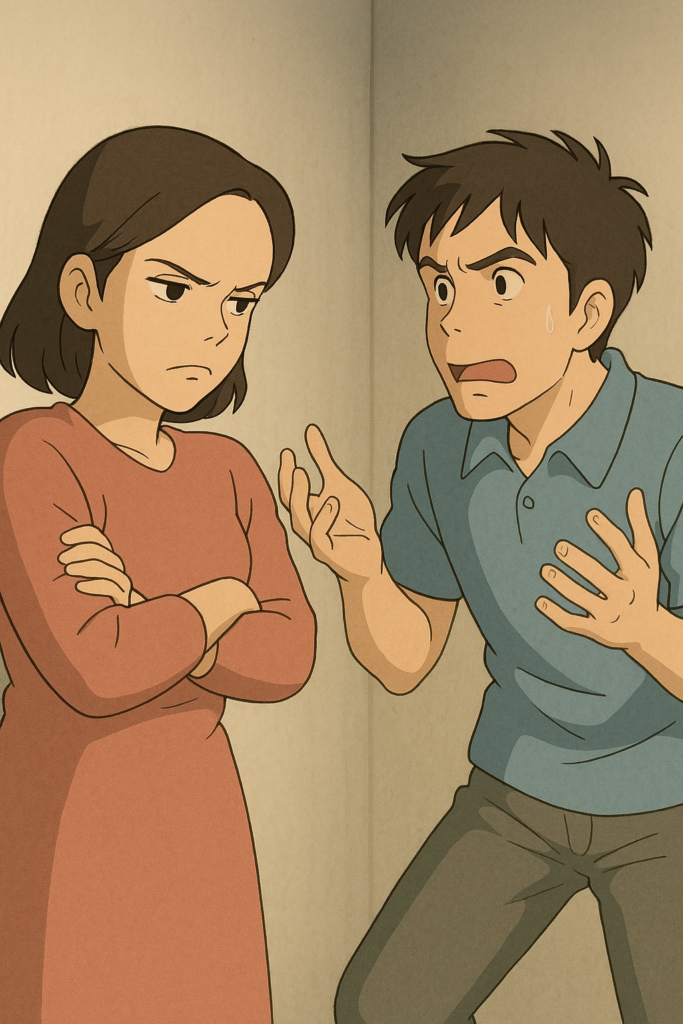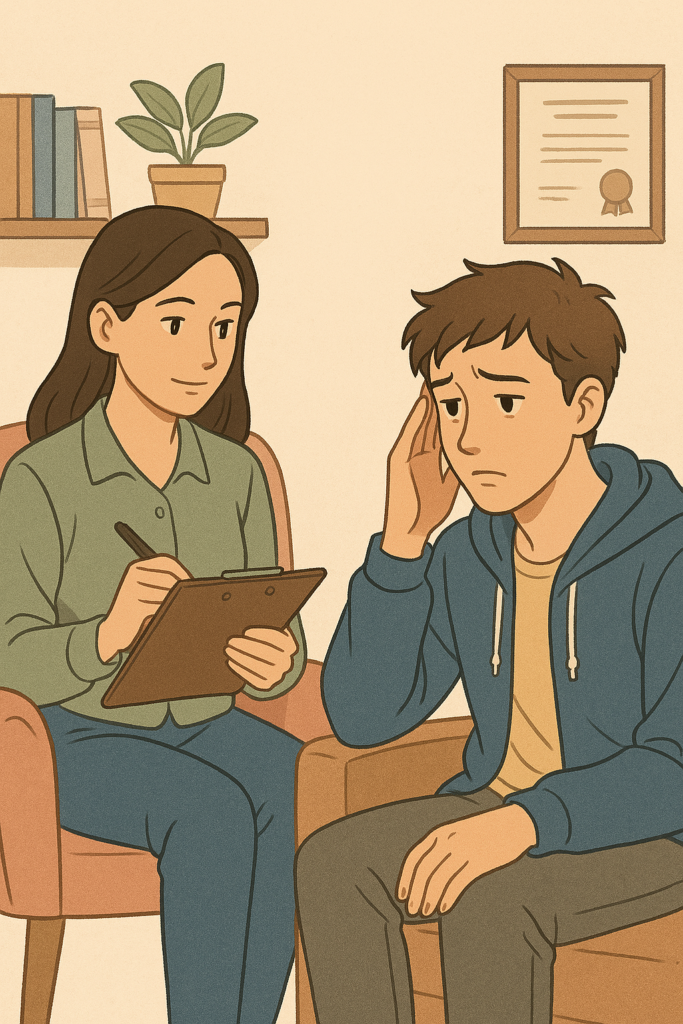Narcissism is a term we hear often, but its complexities go far beyond the surface-level traits of arrogance or self-obsession. At its core, narcissism is a deep psychological pattern, often rooted in early life experiences, that manifests in behaviors designed to protect a fragile sense of self. One of the most dramatic phenomena in the narcissistic personality is what experts call narcissistic collapse.
This state occurs when a narcissist’s carefully curated facade crumbles, exposing their vulnerabilities. For those dealing with a narcissist in their lives, recognizing and understanding narcissistic collapse is crucial for navigating these challenging dynamics.
What is Narcissistic Collapse?
Narcissists rely heavily on a constructed “mask” or persona to maintain their sense of superiority and control. This mask is their defense against feelings of inadequacy, insecurity, or shame.
The collapse happens when this mask is pierced—when their sense of self is challenged or their grandiosity is questioned. For example, a narcissist might crumble after a major life event, such as a public failure, the loss of a job, or a significant relationship ending.
In these moments, their usual strategies for maintaining control—like manipulation, gaslighting, or charm—stop working. What emerges is a cascade of emotions that they struggle to manage, often leading to visible breakdowns, rage, or withdrawal.
Signs of Narcissistic Collapse
While each narcissist responds differently, there are common signs of narcissistic collapse:
- Emotional Outbursts
When the narcissist’s mask falls, their emotions can swing wildly. Anger, despair, or even paranoia can surface. They may lash out at those around them, blaming others for their feelings of inadequacy. - Withdrawal and Avoidance
Some narcissists retreat entirely, isolating themselves to avoid further shame or humiliation. This withdrawal can appear as silent treatment or complete disconnection from their usual social circles. - Increased Manipulation Attempts
In desperation to regain control, a narcissist may double down on manipulative tactics. This can include guilt-tripping, playing the victim, or trying to evoke sympathy from others. - Physical Symptoms
Narcissistic collapse can trigger psychosomatic symptoms, like fatigue, headaches, or stomach issues, as the mental strain impacts their body. - Overcompensation
In an attempt to mask their vulnerability, they might exhibit even more grandiose behavior, boasting about achievements or exaggerating their successes to reclaim their perceived superiority.
What Triggers Narcissistic Collapse?
Narcissistic collapse often results from what psychologists call “narcissistic injury.” These are events or interactions that challenge a narcissist’s inflated sense of self.
- Criticism: Even minor critiques can feel like personal attacks to a narcissist.
- Failure: Professional setbacks or personal losses can severely dent their self-image.
- Rejection: Ending a relationship or refusing their advances can leave a narcissist feeling powerless.
- Loss of Admiration: If their usual sources of validation (like a partner, colleague, or audience) stop providing praise, it can destabilize their sense of self-worth.
Why Does Narcissistic Collapse Happen?
To understand why collapse occurs, it’s essential to grasp the psychology of narcissism. At its root, narcissism stems from unmet emotional needs, often during childhood. Narcissists develop their “mask” as a coping mechanism to shield their inner vulnerability.
When the mask is no longer effective, the suppressed feelings of inadequacy and shame surge to the surface. Lacking healthy emotional tools, they are left floundering, trying to reconcile their internal chaos with the external perception they’ve built.
How to Handle Narcissistic Collapse
If you’re in a relationship—romantic, professional, or familial—with someone experiencing narcissistic collapse, navigating the situation can be challenging. Here’s how to approach it:
Set Boundaries

During a collapse, a narcissist may lash out or seek to draw others into their emotional turmoil. It’s crucial to set clear boundaries. Communicate what behaviors are unacceptable and protect your emotional well-being.
Avoid Engaging in Power Struggles

Resist the urge to “fix” or argue with the narcissist during their breakdown. Their heightened emotional state often prevents rational discussion. Instead, focus on maintaining your composure.
Validate Without Enabling

Acknowledging their feelings can sometimes help de-escalate the situation. However, avoid reinforcing their unhealthy coping mechanisms. Statements like, “I understand this is difficult for you,” can validate their experience without feeding their need for control.
Encourage Professional Help

Narcissistic collapse often requires therapeutic intervention. Encouraging the individual to seek counseling or therapy can be a positive step. Professional support provides them with tools to address their insecurities and build healthier coping mechanisms.
Take Care of Yourself

Dealing with a narcissist’s collapse can be emotionally taxing. Prioritize your mental health by seeking support from friends, family, or a therapist. Practicing self-care ensures you’re equipped to handle their behavior without being consumed by it.
The Role of Therapy in Addressing Narcissistic Collapse
Therapy plays a vital role in helping individuals with narcissistic traits manage and recover from collapse. A skilled therapist can help them explore the root causes of their behaviors, build emotional resilience, and develop healthier self-perceptions.
Some therapeutic approaches include:
- Cognitive Behavioral Therapy (CBT): CBT helps individuals reframe negative thought patterns and develop healthier coping strategies.
- Schema Therapy: Focuses on identifying and changing deep-rooted patterns established in childhood.
- Mindfulness-Based Therapies: Teach narcissists how to manage their emotions and respond to stress without resorting to defensive tactics.
It’s important to note that therapy requires willingness on the narcissist’s part. Without their commitment to change, progress may be limited.
Why Understanding Narcissistic Collapse Matters
For those who interact with narcissists, understanding collapse is key to navigating their relationships more effectively. It sheds light on the motivations behind their actions, fostering empathy without sacrificing self-protection.
For the narcissist, recognizing collapse can be the first step toward healing. While many narcissists resist acknowledging their vulnerabilities, moments of collapse can act as wake-up calls, prompting them to seek help and address the underlying issues fueling their behaviors.
Moving Forward
Narcissistic collapse is a complex phenomenon that impacts both the individual and those around them. By understanding its signs, triggers, and underlying causes, you can approach these situations with greater clarity and resilience.
Whether you’re trying to support a loved one or protect yourself from the fallout of a narcissist’s breakdown, knowledge is your greatest tool. And while the journey toward healthier dynamics isn’t always easy, it’s a step toward more balanced and fulfilling relationships.
If this topic resonated with you, save this article to your board and share it with others who might benefit from understanding narcissistic collapse.







